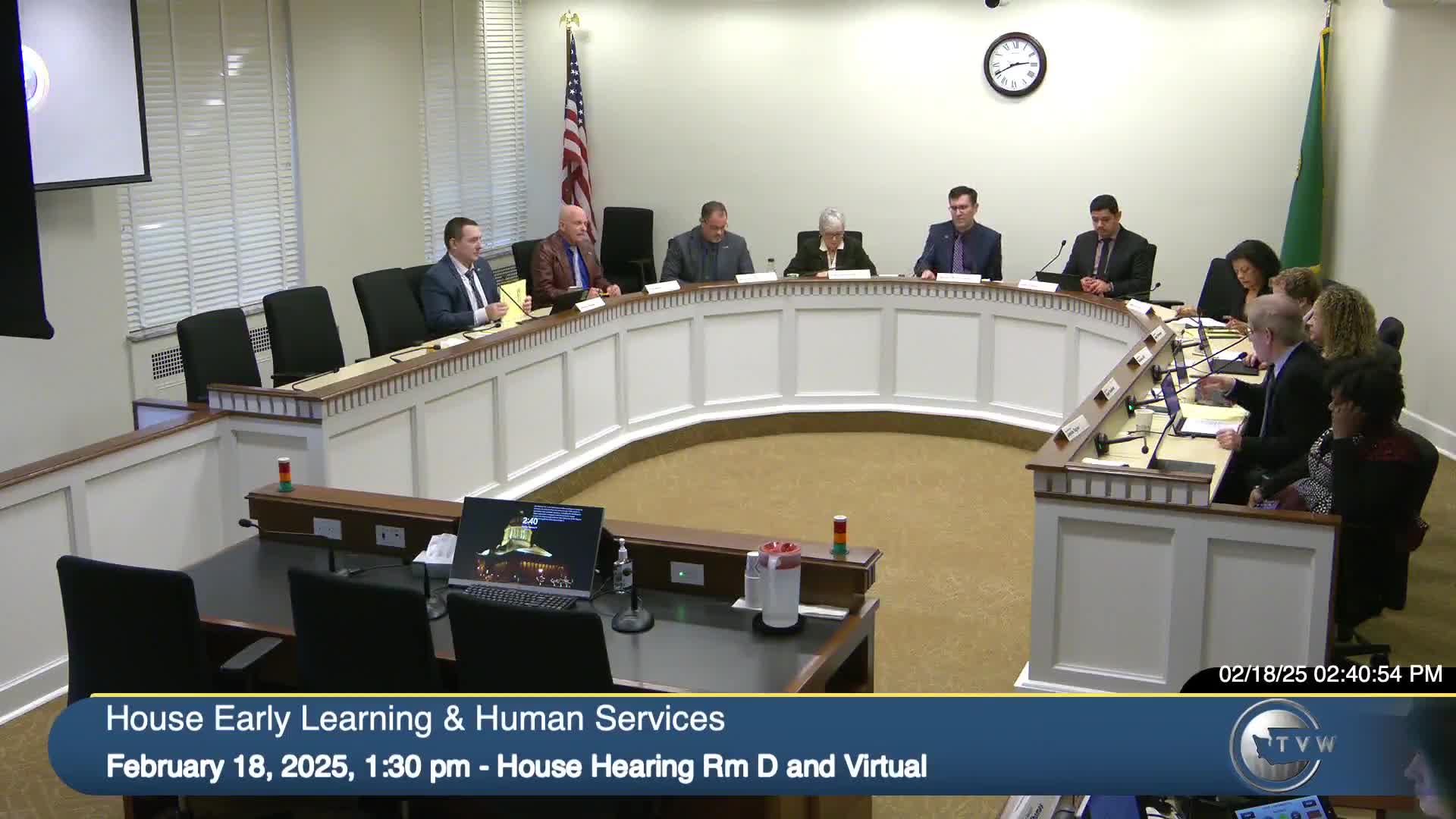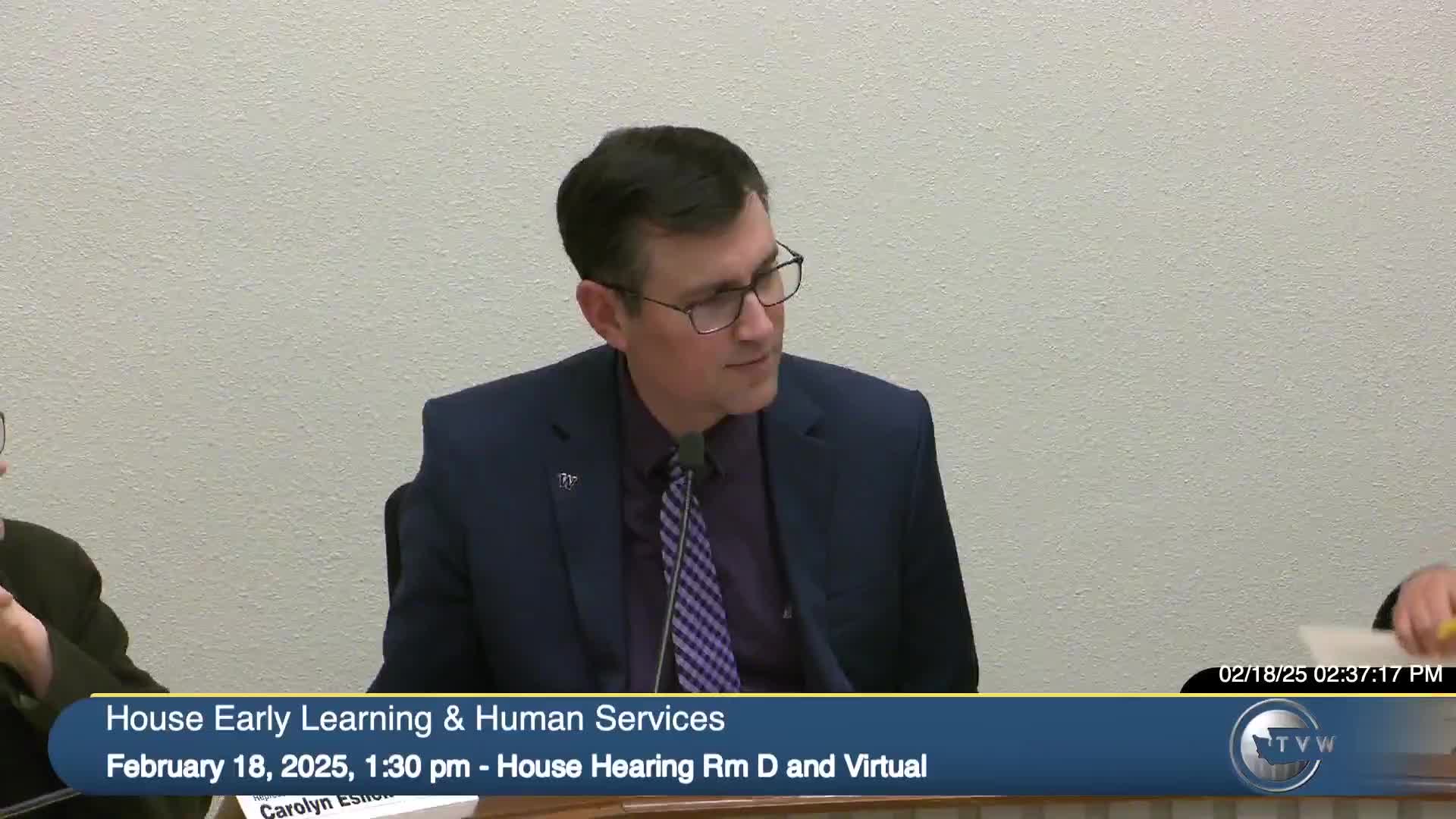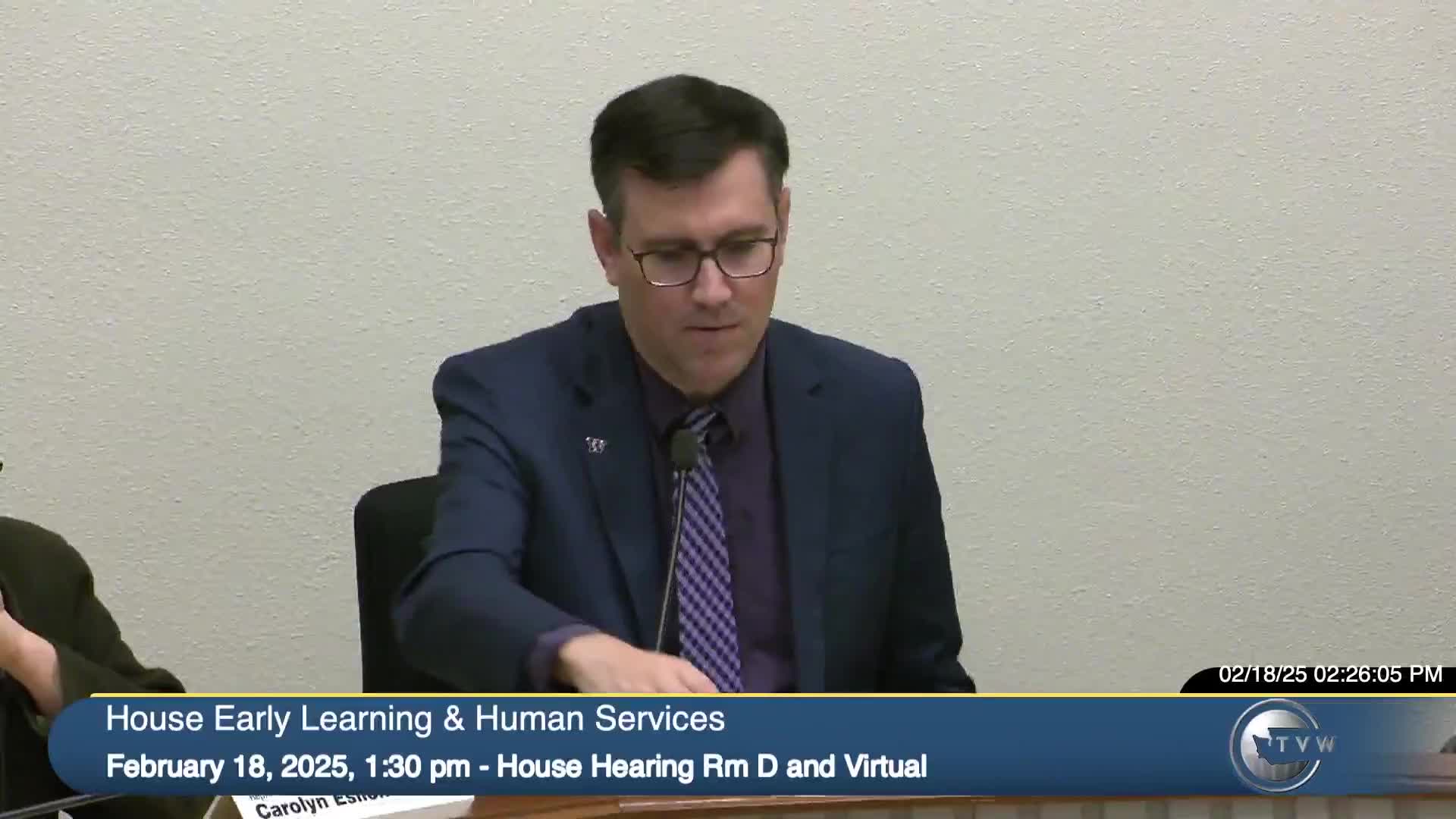Article not found
This article is no longer available. But don't worry—we've gathered other articles that discuss the same topic.

Committee advances substitute for House Bill 1509 after review of seven‑day waiting provisions and counseling rules

Committee reports substitute House Bill 1815 to remove juvenile facilities from "prison riot" offense and allow vacatur/resentencing

Substitute House Bill 1660 cleared by committee after sponsor narrows data requests and incorporates department changes

